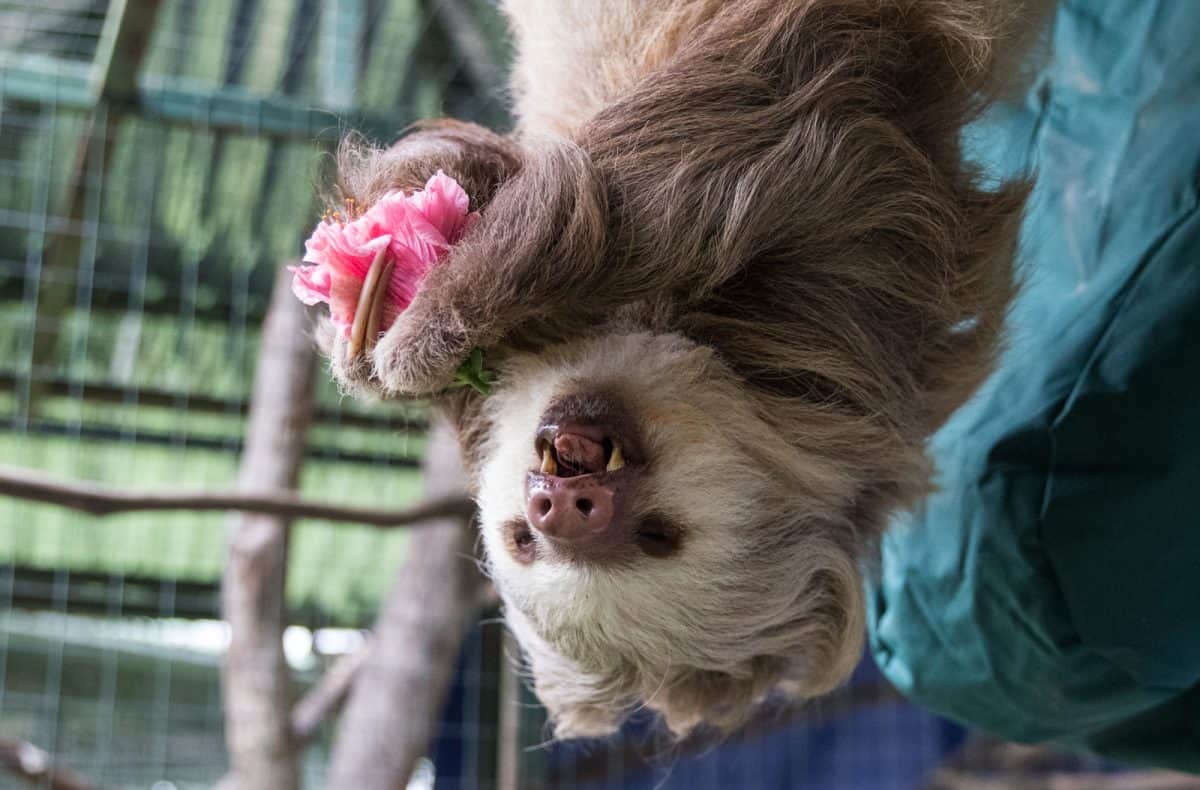Did you know that sloths spend 90 percent of their time upside down? This fascinating behavior is a key aspect of their lifestyle in the rainforest canopy. To better understand this unique habit, a researcher in Costa Rica equipped wild sloths with backpacks that track their movements. The data collected revealed that sloths spend almost all of their time inverted, whether they are resting, eating, or moving from branch to branch.
Sloths have evolved several special adaptations to handle the pull of gravity while hanging upside down. One of the most remarkable adaptations is the presence of fibrous adhesions that keep their internal organs securely in place. In most mammals, hanging upside down for extended periods could cause organs to shift, leading to discomfort or even health problems. However, sloths’ organs are anchored within their bodies, allowing them to remain inverted without any negative effects on their health.
This ability to hang effortlessly is essential for sloths, as it allows them to conserve energy while staying hidden from predators. By spending most of their time high in the trees and upside down, sloths reduce their visibility and avoid detection by predators like jaguars and eagles. Their slow metabolism and low-energy diet make it necessary for them to move as little as possible, and their upside-down lifestyle helps them achieve this.
In addition to keeping them safe, hanging upside down allows sloths to access the leaves and fruits that make up their diet. Their long limbs and specialized claws are perfectly adapted for gripping branches, enabling them to navigate the forest canopy with ease.
To sum it up, sloths’ tendency to spend 90 percent of their time upside down is a testament to their incredible evolutionary adaptations. These slow-moving mammals have developed unique strategies that allow them to thrive in the rainforest, making them one of nature’s most fascinating creatures.






